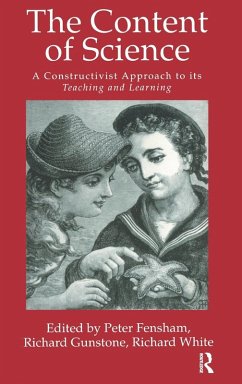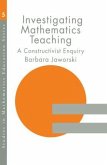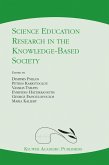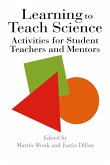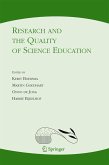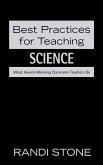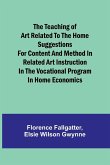The Content of Science: A Constructivist Approach to Its Teaching and Learning
Herausgeber: Fensham, Peter J; White, Richard T; Gunstone, Richard F
The Content of Science: A Constructivist Approach to Its Teaching and Learning
Herausgeber: Fensham, Peter J; White, Richard T; Gunstone, Richard F
- Gebundenes Buch
- Merkliste
- Auf die Merkliste
- Bewerten Bewerten
- Teilen
- Produkt teilen
- Produkterinnerung
- Produkterinnerung
First Published in 1994. Routledge is an imprint of Taylor & Francis, an informa company.
Andere Kunden interessierten sich auch für
![Investigating Mathematics Teaching Investigating Mathematics Teaching]() Barbara JaworskiInvestigating Mathematics Teaching295,99 €
Barbara JaworskiInvestigating Mathematics Teaching295,99 €![Science Education Research in the Knowledge-Based Society Science Education Research in the Knowledge-Based Society]() D. Psillos / Petros Kariotoglou / Vassilis Tselfes / Evripides Hatzikraniotis / George Fassoulopoulos / Maria Kallery (eds.)Science Education Research in the Knowledge-Based Society194,99 €
D. Psillos / Petros Kariotoglou / Vassilis Tselfes / Evripides Hatzikraniotis / George Fassoulopoulos / Maria Kallery (eds.)Science Education Research in the Knowledge-Based Society194,99 €![Learning To Teach Science Learning To Teach Science]() Justin DillonLearning To Teach Science261,99 €
Justin DillonLearning To Teach Science261,99 €![Research and the Quality of Science Education Research and the Quality of Science Education]() Kerst Boersma / Martin Goedhart / Onno de Jong / Harrie Eijkelhof (eds.)Research and the Quality of Science Education370,99 €
Kerst Boersma / Martin Goedhart / Onno de Jong / Harrie Eijkelhof (eds.)Research and the Quality of Science Education370,99 €![Best Practices for Teaching Science Best Practices for Teaching Science]() Randi StoneBest Practices for Teaching Science63,99 €
Randi StoneBest Practices for Teaching Science63,99 €![The Inclusion of Environmental Education in Science Teacher Education The Inclusion of Environmental Education in Science Teacher Education]() The Inclusion of Environmental Education in Science Teacher Education74,99 €
The Inclusion of Environmental Education in Science Teacher Education74,99 €![The Teaching of Art Related to the Home Suggestions for content and method in related art instruction in the vocational program in home economics The Teaching of Art Related to the Home Suggestions for content and method in related art instruction in the vocational program in home economics]() Florence FallgatterThe Teaching of Art Related to the Home Suggestions for content and method in related art instruction in the vocational program in home economics23,99 €
Florence FallgatterThe Teaching of Art Related to the Home Suggestions for content and method in related art instruction in the vocational program in home economics23,99 €-
-
-
First Published in 1994. Routledge is an imprint of Taylor & Francis, an informa company.
Hinweis: Dieser Artikel kann nur an eine deutsche Lieferadresse ausgeliefert werden.
Hinweis: Dieser Artikel kann nur an eine deutsche Lieferadresse ausgeliefert werden.
Produktdetails
- Produktdetails
- Verlag: Taylor & Francis
- Seitenzahl: 292
- Erscheinungstermin: 2. März 2017
- Englisch
- Abmessung: 234mm x 156mm x 18mm
- Gewicht: 590g
- ISBN-13: 9781138165809
- ISBN-10: 1138165808
- Artikelnr.: 71655862
- Herstellerkennzeichnung
- Libri GmbH
- Europaallee 1
- 36244 Bad Hersfeld
- gpsr@libri.de
- Verlag: Taylor & Francis
- Seitenzahl: 292
- Erscheinungstermin: 2. März 2017
- Englisch
- Abmessung: 234mm x 156mm x 18mm
- Gewicht: 590g
- ISBN-13: 9781138165809
- ISBN-10: 1138165808
- Artikelnr.: 71655862
- Herstellerkennzeichnung
- Libri GmbH
- Europaallee 1
- 36244 Bad Hersfeld
- gpsr@libri.de
Peter Fensham was the first Professor of Science Education in Australia after teaching university chemistry for ten years. From 1967-1992 he held that position at Monash University but was also Dean of the Faculty of Education from 1982-1988. He has been involved in Australia in science education, in curriculum policy, and in social justice in schools and higher education. Dick Gunstone is an Associate Professor in the Education Faculty at Monash University. Before joining Monash in 1974 he taught physics and maths in Victorian schools. Currently his teaching and research embrace science education, metacognition and professional development of pre- and in-service teachers. Richard White taught general science, physics and chemistry for ten years in high schools before joining Monash University in 1971. He has been Professor of Education-al Psychology since 1981. His professional interest is in the quality of learning, which has led him into research on learning hierarchies, episodic memory, cognitive structure and metacognition.
Figures and Tables
Preface
1 Introduction
2. Beginning to Teach Chemistry
3. Generative Science Teaching
4. Constructivism
Re-constructivism and Task-orientated Problem-solving
5. Structures
Force and Stability. Design a Playground (Year 6)
6. Pupils' Understanding Magnetism in a Practical Assessment Context: The Relationship Between Content
Process and Progression
7. Primary Science in an Integrated Curriculum
8. Digging into Science - A Unit Developed for a Year 5 Class
9. Year 3: Research into Science
10. The Importance of Specific Science Content in the Enhancement of Metacognition
11. The Constructivist Paradigm and Some Implications for Science Content and Pedagogy
12. Making High-tech Micrographs Meaningful to the Biology Student
13. Year 9 Bodies
14. Learning and Teaching Energy
15. Working from Children's Ideas: Planning and Teaching a Chemistry Topic from a Constructivist Perspective
16. States of Matter - Pedagogical Sequence and Teaching Strategies Based on Cognitive Research
17. Pedagogical Outcomes of Research in Science Education: Examples in Mechanics and Thermodynamics
18. Dimensions of Content
Postscript
Notes on Contributors
Author Index
Subject Index
Preface
1 Introduction
2. Beginning to Teach Chemistry
3. Generative Science Teaching
4. Constructivism
Re-constructivism and Task-orientated Problem-solving
5. Structures
Force and Stability. Design a Playground (Year 6)
6. Pupils' Understanding Magnetism in a Practical Assessment Context: The Relationship Between Content
Process and Progression
7. Primary Science in an Integrated Curriculum
8. Digging into Science - A Unit Developed for a Year 5 Class
9. Year 3: Research into Science
10. The Importance of Specific Science Content in the Enhancement of Metacognition
11. The Constructivist Paradigm and Some Implications for Science Content and Pedagogy
12. Making High-tech Micrographs Meaningful to the Biology Student
13. Year 9 Bodies
14. Learning and Teaching Energy
15. Working from Children's Ideas: Planning and Teaching a Chemistry Topic from a Constructivist Perspective
16. States of Matter - Pedagogical Sequence and Teaching Strategies Based on Cognitive Research
17. Pedagogical Outcomes of Research in Science Education: Examples in Mechanics and Thermodynamics
18. Dimensions of Content
Postscript
Notes on Contributors
Author Index
Subject Index
Figures and Tables
Preface
1 Introduction
2. Beginning to Teach Chemistry
3. Generative Science Teaching
4. Constructivism
Re-constructivism and Task-orientated Problem-solving
5. Structures
Force and Stability. Design a Playground (Year 6)
6. Pupils' Understanding Magnetism in a Practical Assessment Context: The Relationship Between Content
Process and Progression
7. Primary Science in an Integrated Curriculum
8. Digging into Science - A Unit Developed for a Year 5 Class
9. Year 3: Research into Science
10. The Importance of Specific Science Content in the Enhancement of Metacognition
11. The Constructivist Paradigm and Some Implications for Science Content and Pedagogy
12. Making High-tech Micrographs Meaningful to the Biology Student
13. Year 9 Bodies
14. Learning and Teaching Energy
15. Working from Children's Ideas: Planning and Teaching a Chemistry Topic from a Constructivist Perspective
16. States of Matter - Pedagogical Sequence and Teaching Strategies Based on Cognitive Research
17. Pedagogical Outcomes of Research in Science Education: Examples in Mechanics and Thermodynamics
18. Dimensions of Content
Postscript
Notes on Contributors
Author Index
Subject Index
Preface
1 Introduction
2. Beginning to Teach Chemistry
3. Generative Science Teaching
4. Constructivism
Re-constructivism and Task-orientated Problem-solving
5. Structures
Force and Stability. Design a Playground (Year 6)
6. Pupils' Understanding Magnetism in a Practical Assessment Context: The Relationship Between Content
Process and Progression
7. Primary Science in an Integrated Curriculum
8. Digging into Science - A Unit Developed for a Year 5 Class
9. Year 3: Research into Science
10. The Importance of Specific Science Content in the Enhancement of Metacognition
11. The Constructivist Paradigm and Some Implications for Science Content and Pedagogy
12. Making High-tech Micrographs Meaningful to the Biology Student
13. Year 9 Bodies
14. Learning and Teaching Energy
15. Working from Children's Ideas: Planning and Teaching a Chemistry Topic from a Constructivist Perspective
16. States of Matter - Pedagogical Sequence and Teaching Strategies Based on Cognitive Research
17. Pedagogical Outcomes of Research in Science Education: Examples in Mechanics and Thermodynamics
18. Dimensions of Content
Postscript
Notes on Contributors
Author Index
Subject Index

